Support quality, independent, local journalism…that matters
From just £1 a month you can help fund our work – and use our website without adverts. Become a member today
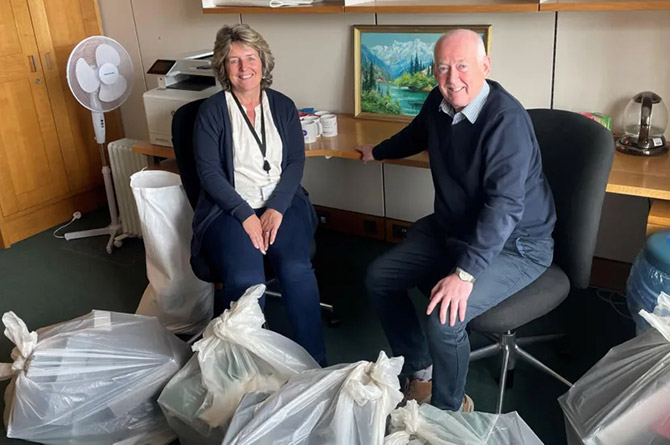
Earlier this month, Labour returned to power in the UK for the first time in 14 years, but one Labour MP who is not returning to parliament is Sir Wayne David.
Having first been elected to represent the area in the 2001 general election, Mr David decided to step down at this year’s election after 23 years of service.
Caerphilly Observer sat down with Mr David at his constituency office in Bedwas following the election to discuss his decision to step down, his time in Westminster, and his passions outside of politics.
In 2022, Mr David confirmed he would not seek re-election. Explaining his decision, he said: “I like to think I’ve been a hard-working, diligent MP, particularly on constituency issues, and if I was to have stood again, I would have had to have given the commitment to continue to be an MP well into my 70s.
“Everybody’s different, but I I don’t think I could have been as hard working and as effective in my 70s as I had been previously, so I decided it was time to retire.
“So at the age of 67, that’s what I decided to do, simple as that.”
Looking back at his accomplishments in parliament, one particular issue stood out to Mr David.
“Over the years, I’ve focused on a number of different issues, but recently, I think one of the most important issues I focused on was the issue of dangerous dogs.”
His work on this issue came after the tragic death of ten-year-old Jack Lis, who was attacked by an XL Bully at a friend’s house in Penyrheol in November 2021.
Mr David worked with Jack’s mother, Emma Whitfield, to campaign for changes to the laws around dangerous dogs.
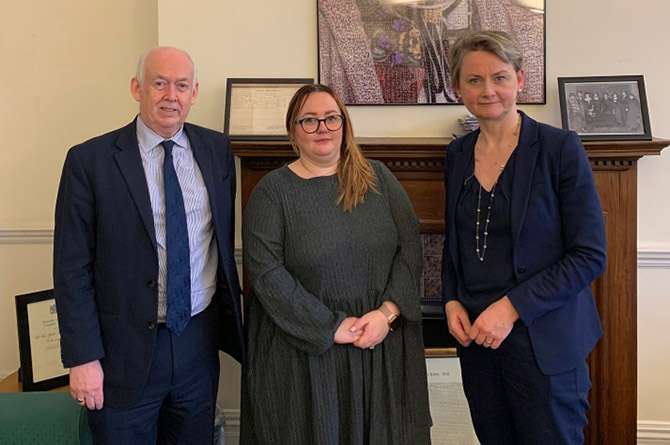
“Working with Emma and others, we managed to give the issue a really big national profile and the then-Prime Minister, Rishi Sunak, responded by adding XL Bullies to the dangerous dogs list,” said Mr David.
“That was a significant achievement, particularly with Emma.”
He explained that while this one change does not solve the problem, it’s a “significant step forward” – one he is hopeful will be expanded upon by the new government.
“I am very proud of the work I did on that,” said Mr David. “It’s something of tremendous concern to people nationally, but it’s a good example of making the link between local concerns, local developments, and a UK-wide picture.”
Another moment of immense pride during Mr David’s time in parliament was when he was named the best MP in the UK by Change.org, based on criteria such as responsiveness, availability, number of surgeries held and spoken contributions in parliament.
Political beginnings
Coming from a strong Labour supporting family near Bridgend, Mr David said he was “born into politics”.
His two grandfathers were coal miners, while his father was a school teacher and councillor.
“I was surrounded by politics from a very early age. Then when I went to university, I rationalised my thinking and became committed to democratic socialism. After that, one thing led to another and that explains why I’m here now.”
However, despite a lengthy career in politics, Mr David’s working life began in teaching.
“I was a history teacher for 18 months before becoming a tutor organiser in adult education, where I taught music and a whole range of different subjects. That’s when I first got to know Caerphilly, because that was part of the area I had responsibility for in terms of adult education.”
Mr David’s first step into politics came when he was elected to Cefn Cribwr Community Council. He would go on to serve in the European Parliament, where he represented south Wales for ten years.
He stepped down to contest the Rhondda seat in the first ever National Assembly for Wales election in 1999, but was unsuccessful.
A year later, Mr David successfully sought the Labour nomination to contest the Caerphilly seat at the 2001 general election.
Parliament

Mr David served on the government benches under both Tony Blair and Gordon Brown, while sitting in opposition during the prime ministerial terms of David Cameron, Theresa May, Boris Johnson, Liz Truss, and lastly Rishi Sunak.
Working in such close proximity to these names was a “strange feeling” he admitted, but added: “It’s important to realise that all politicians are human beings, and you get good human beings and bad human beings.
“But nevertheless, all politicians are ordinary, real people in essence and it’s important to recognise that all people are susceptible to human feelings and emotions. You can sense that very much in the House of Commons chamber.”
Front and back benches
Mr David described 23 years as a “long time” in terms of constituency work.
“When I was first elected, the big issue was compensation for retired miners. That seems a long time ago now, but that was a big and important issue, given some of the big collieries closed quite late.”
Much of Mr David’s time in parliament would be spent on the front benches, both in government and opposition.
During the previous Labour administration, Mr David was a government whip, and later a junior minister in the Wales Office. In opposition, he had spells as a shadow Wales Office minister, a shadow Europe minister, and also a shadow Scottish minister, as well as shadow minister for constitutional affairs, while also working as then-leader Ed Miliband’s parliamentary private secretary.
He also had roles as a shadow defence minister, and until his retirement was a shadow minister for the Middle East and North Africa.
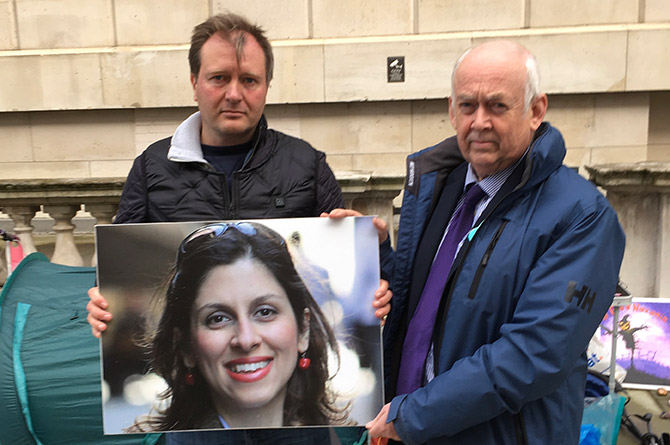
But he admitted it wasn’t always easy juggling these important roles with constituency work.
“Sometimes it’s not easy, particularly with the last job I was doing shadowing for Middle East and North Africa. Responding to the situation in Gaza has been very difficult, and the situation unfortunately still is terrible in Gaza.
“It can be hard to switch off from. I can’t pretend it’s easy. Being on the front benches is difficult and being in government is even more difficult. There’s tremendous responsibility there and all too often there are no easy answers to many of the huge issues which Britain and the world faces.”
Part of the community
Away from his front bench roles, Mr David has been active within a number of community groups in the Caerphilly constituency, including Aber Valley Male Voice Choir and BTM Brass Band.
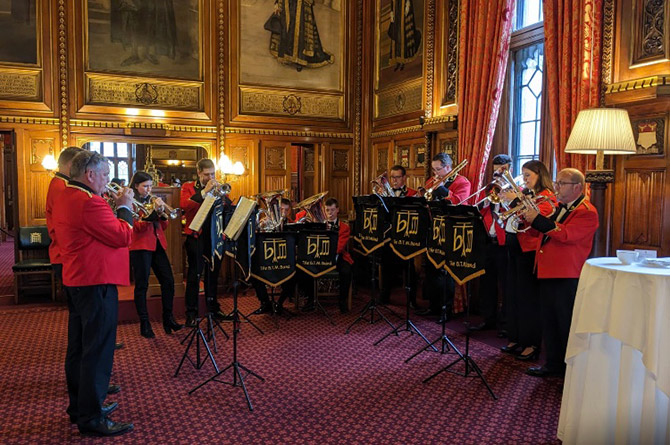
Mr David was involved in giving both groups the opportunity to perform at the speaker’s house in parliament.
He also has strong ties with Caerphilly Ladies Choir, through which he met his wife, Jayne.
The couple grew close through their shared passion of music.
“It’s nice to have what Dennis Healey once described as hinterland,” Mr David explained. “That is to recognise that politics isn’t the be all and end all of life. It’s one important element of it, but there’s so many other things as well – and music is a vital part of my hinterland.”
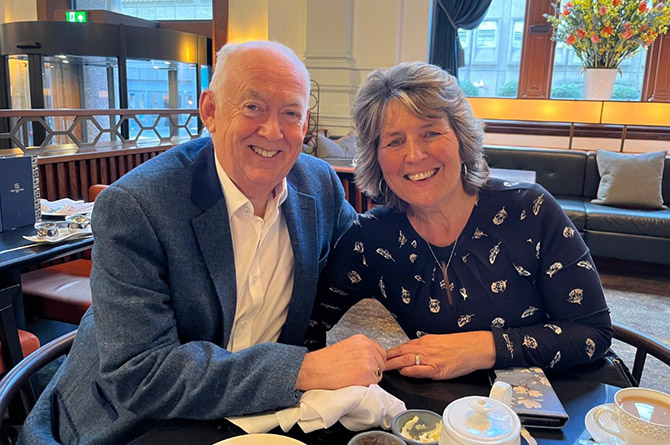
Music
Music has been a lifelong passion of Mr David’s, having been introduced to the oboe in school.
“It’s probably the only instrument they had left, because in those days they gave out instruments to the youngsters who wanted the violins, trumpets, and clarinets – but nobody wanted an oboe,” he said.
“So I had an oboe lent to me by the school, and I was fascinated by it. At one time I was toying with the idea of trying to be a professional oboist.
“I was principal oboist for the National Youth Orchestra for Wales, but I recognised that I was going to struggle at a national level if I was a professional. So being realistic, I decided to keep that as my hobby and focus on history and then politics.
“But music is something which is always with you throughout your life.”
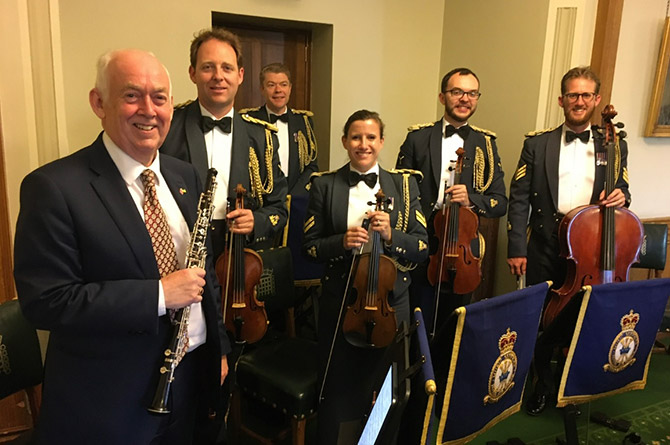
In parliament, Mr David had the honour of performing with the RAF Salon Orchestra on three separate occasions, after taking part in an RAF parliamentary scheme.
What is the RAF Salon Orchestra?
The Royal Air Force Salon Orchestra, based at RAF Northolt, is a 7-piece strings and piano ensemble that performs for Royal, State, and ceremonial occasions across the UK and around the world.
The Orchestra’s roots are traceable to 1937 when some of London’s finest string players were recruited for the RAF Symphony Orchestra, which found eminence in the war years.
As National Service came to an end, the RAF Symphony Orchestra was significantly reduced, and the RAF Salon Orchestra was established in 1949.
Today, this versatile ensemble performs in a variety of settings from intimate formal dinners to prestigious concert venues.
Source: Royal Air Force
“They’re a very good group of musicians as well too – they’re excellent.”
Past and present
Away from music, Mr David is a keen historian, with a particular interest in Labour history from 1900 to present day.
He has written books about two of his predecessors. These are Ness Edwards, who was the Labour MP for Caerphilly between 1939 and 1968, as well as Morgan Jones, who served between 1921 and 1939.

Mr David met their families as part of his research for the books, something he described as “quite a moving process”.
Looking to the future, he praised his successor, Chris Evans, who will now represent the Caerphilly constituency after 14 years in parliament serving Islwyn.
“I first met Chris when he won a poster competition when I was an MEP. I think he will be a committed hard-working MP. I wouldn’t necessarily say he would have the same interests in music as me for example, or play the oboe, but he will have the same perspective of working with people in the community and representing them well.
“We had a very good meeting with his constituency staff, who will be based in Pontllanfraith in the constituency, and we will be handing over our ongoing files of issues and cases we’ve been working on and they’ll be working on them as well, so I think it has been an effective handover.”
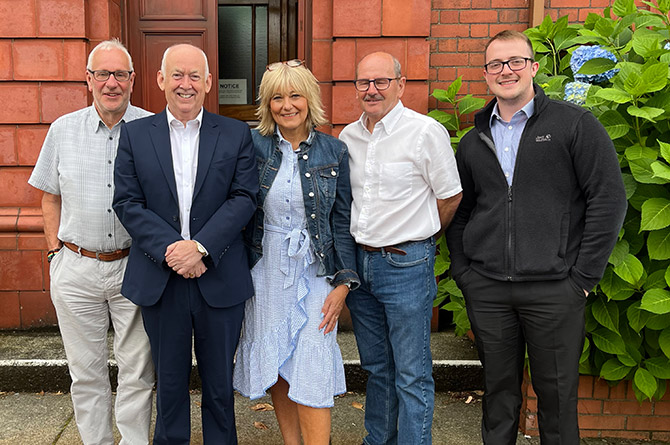
Knighthood and retirement
When then-Prime Minister Sunak called a general election back in May, it spelled the end of Mr David’s time as an MP as parliament was dissolved.
But a couple of weeks later, Mr David was recognised in the King’s Birthday Honours for parliamentary and political service – receiving a knighthood.
It was something he described as a “complete surprise” – and thanked the people of Caerphilly, as well as his family, for their support.
Speaking about his plans for retirement, the newly-anointed Sir Wayne joked: “I haven’t got domestic plans but my wife has a long list of things to be done, including, once we get some decent weather, a lot of gardening.
“But I wouldn’t rush into doing anything politically.”
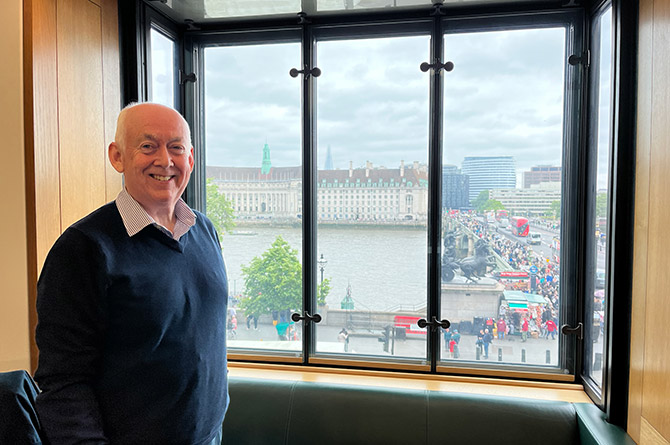
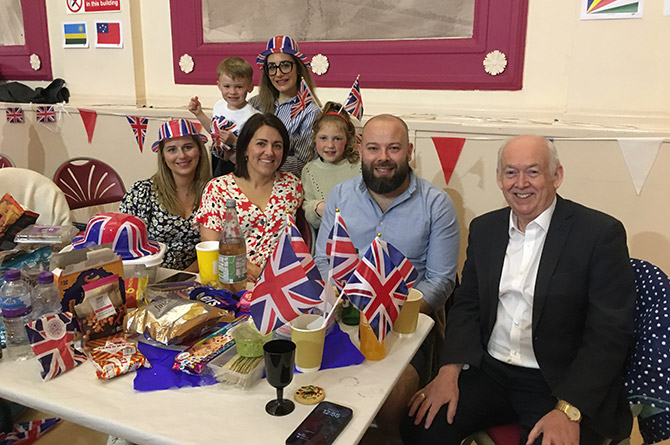

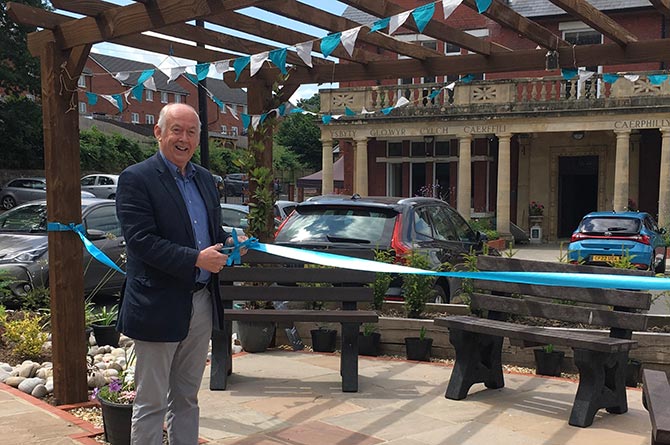
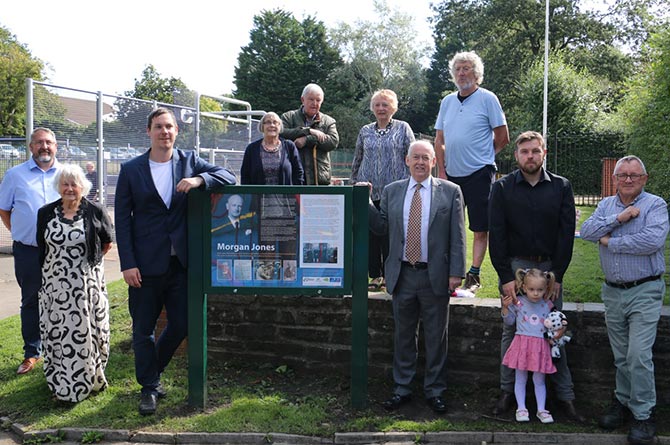
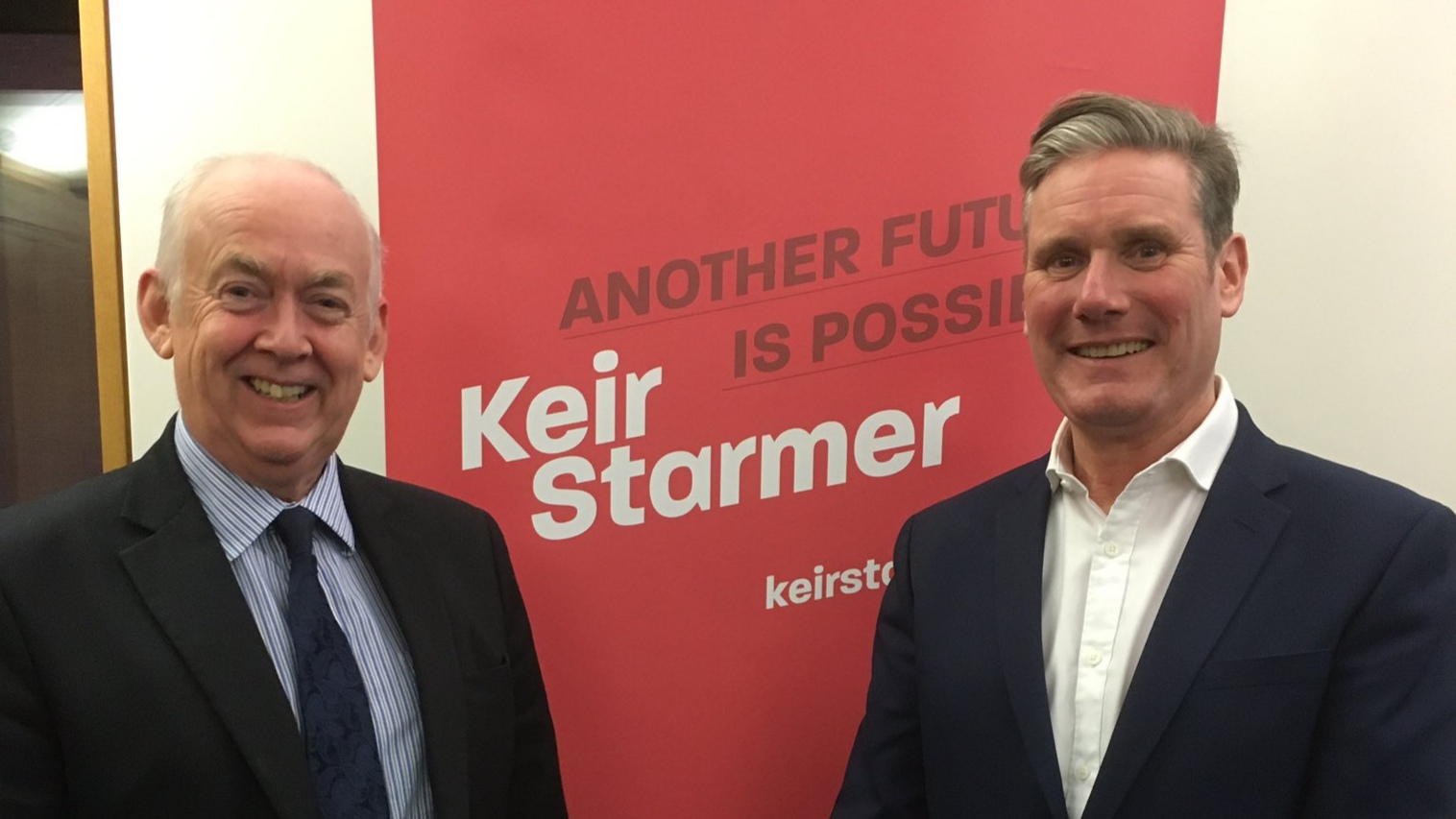
Support quality, independent, local journalism…that matters
From just £1 a month you can help fund our work – and use our website without adverts.
Become a member today
